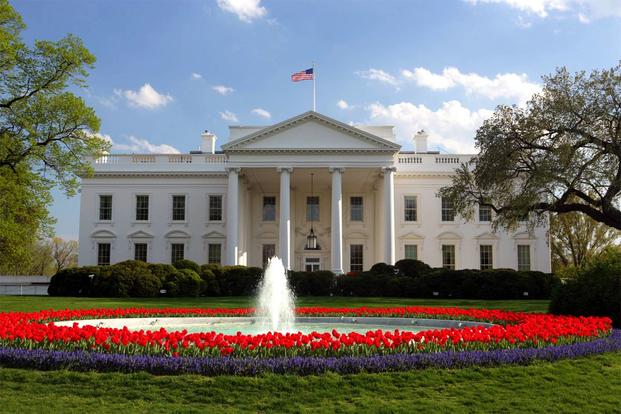Memorial Day this year calls on all Americans with particular significance. It requires us to look backward at our past and forward to our future as our nation considers its choices for its next commander in chief.
Just last year we celebrated the seventieth anniversary of the end of World War II, the worst war in human history. Americans like Lieutenant Dick Winters of the 101st Airborne parachuted into Normandy seventy-two years ago, in 1944, in Operation Overlord. In the spring of 1945, American soldiers discovered the horrors of the Nazi concentration camps. After Eisenhower visited Ohrdruf concentration camp, which had been liberated by American troops on April 4, he declared: "We are told that the American soldier does not know what he is fighting for. Now at least he will know what he is fighting against."
Over the course of just under four years, over sixteen million American men and women had served in some capacity in the war. Today in 2016, fewer than one million WWII vets are still alive.
Just over 400,000 Americans, most of them young, never returned from their duties in World War II. On Memorial Day, Americans will visit cemeteries such as Arlington in Virginia, as well as many more around the nation. Many Americans who paid the ultimate price are, however, buried overseas, in twenty-four different cemeteries in eleven different countries.
Throughout its history, Europe has been a blood-soaked continent. Two World Wars scarred the twentieth century. The Napoleonic Wars raged on and off for over fifteen years. The Hundred Years’ War between France and England actually lasted for 116 years.
After World War II ended, American servicemen and women stayed in bases across Europe. The Marshall Plan helped to rebuild the shattered economies of postwar Europe. In 1946, Winston Churchill warned of an "Iron Curtain" that had descended on Eastern Europe. NATO was founded in 1949 to confront the challenge of Communism.
In 1989, the Cold War finally ended and the Berlin Wall came down. The defeat of Fascism and Communism was due in large part to the sacrifice of the American servicemen and women that we honor on Memorial Day.
Since 1945, Europe has enjoyed a period of peace, interrupted only by the breakup of Yugoslavia, that is unprecedented in its history. America as well as Europe have benefitted from this long peace.
Simultaneously, though, Americans have been fighting a war of unprecedented duration. On September 11, 2001, our world suddenly changed. Since the autumn of 2001, American troops have been engaged in Afghanistan fighting Al Qaeda and the Taliban. There are soldiers serving today in Afghanistan who were toddlers when the Twin Towers in New York were struck by hijacked commercial airliners.
Americans in 2016 confront many dangers. In the Middle East, we must face the challenge posed by ruthless ISIS operatives who have waged a war against diverse people in different countries, and even against history itself. The Syrian civil war has claimed over 100,000 lives and has created the worst refugee crisis since World War II. Recent attacks in Paris, Brussels, and San Bernardino, California, remind us that terrorism remains a threat around the world.
This year, Americans will select a new commander in chief. As we go to the polls in November, we should reflect upon the need for sound, mature judgment in all of our leaders, and particularly in our president. Americans must consider that they are choosing an individual who controls the most powerful military in the world and who has the power to end life as we know it.
Memorial Day imposes a duty on all Americans to remember the sacrifice of our fallen heroes and to reflect prayerfully on how best we should steer a course through our dangerous and turbulent world.
Christopher Kelly is the co-author of America Invades: How We’ve Invaded or Been Militarily Involved with almost Every Country on Earth and Italy Invades: How Italians Conquered the World. For more information, visit www.americainvades.com and www.italyinvades.com.











